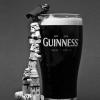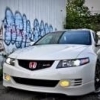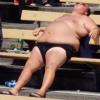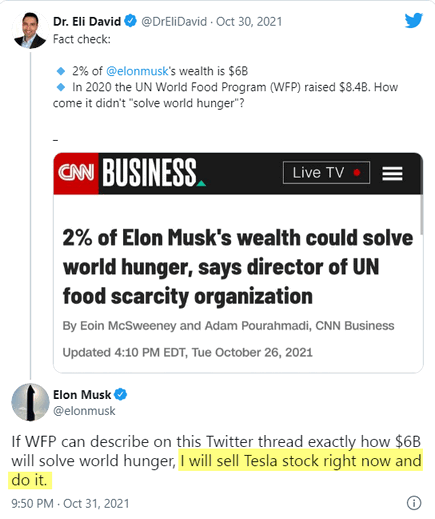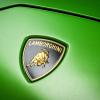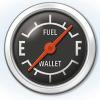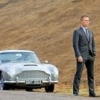Search the Community
Showing results for tags 'tax'.
-
A lady and her 7-year-old son are eating in a restaurant. In a moment of playfulness, the boy swallows a coin and chokes. The mother tries slapping his back, rubbing his neck, shaking him hard and everything she could think of, without success. The boy begins to turn blue. The desperate mother starts screaming for help. A man gets up from a nearby table, and with astonishing tranquillity, without saying a word, lowers the boy's pants and squeezes his testicles. The boy yells and spits out the coin. The gentleman with the same tranquillity returns to his table without a word. Soon, the mother calms down and approaches the gentleman to thank him for saving her son's life. She asks, "Sir, are you a doctor?" "No, ma'am," comes the reply. "I'm an Assistant Commissioner of the Inland Revenue Authority of Singapore." "We are trained to squeeze everyone's balls to make them cough up the last penny." Reminder to file and confirm your tax returns by 15-April 2019 (for paper filing) and 18 April 2019 (e-filing)
- 108 replies
-
- 21
-

-
- income tax
- iras
- (and 4 more)
-
SINGAPORE - Singapore may well become the first country in the world to ban the sale of packaged drinks with high sugar content. This is one of the moves the Ministry of Health (MOH) is contemplating in its efforts to cut the high sugar intake of people here, as it is a major factor for obesity and diabetes. The MOH and the Health Promotion Board are asking people for their views on four measures to cut sugar intake from drinks, which include 3-in-1 mixes, cordials, yogurt drinks, fruit juices and soda drinks. The target is on drinks as they account for more than half the 12 teaspoons of sugar people here take each day. One in four sugar-sweetened beverages contains 5.5 teaspoons of sugar or more. The four measures the MOH wants public feedback on are: - Total ban on pre-packed high-sugar drinks - Single or tiered tax on high-sugar drinks - Mandatory front-of-pack labelling on sugar/nutrition content - Ban on advertisements on all platforms for high-sugar drinks, including social media and on buses Singapore already does not allow the sale of high-sugar drinks in schools and on government premises. Many companies also refrain from advertising high-sugar drinks during the hours when children are more likely to be watching television. There is also the Healthier Choice Symbol to identify healthier drinks. But this, too, is voluntary. The public consultation is to gauge people's reactions to pushing these boundaries further. In a press statement, the MOH said that every 250ml of sugar-sweetened beverages daily raises a person's risk of getting diabetes by 18 per cent to 26 per cent. This is from various studies, so the amount of sugar in the drink was not indicated. The World Health Organisation (WHO) encourages people to take as little sugar as possible as "nutritionally, people do not need any sugar in their diet". It said reducing sugar intake to 25g a day would provide health benefits. This is equal to five teaspoons as measured in Singapore, but six teaspoons according to the WHO. Experts The Straits Times spoke to all agreed that a total ban on high-sugar drinks would be the most effective, but also the least politically palatable measure. Professor Teo Yik Ying, dean of the Saw Swee Hock School of Public Health, said the four measures are not mutually exclusive and together, are "very much in the right direction". He added that any reduction in sugar intake will directly translate to health benefits. Both he and Professor Eric Finkelstein of the Duke-NUS Medical School agree that packaged fruit juices, even those with no added sugar, should not be exempt. Prof Finkelstein said sugar is sugar, adding that the narrower the tax, the less effective it is as people can still have other high-calorie drinks as substitutes. Dr Kalpana Bhaskaran, a glycaemic expert from Temasek Polytechnic, said a 330ml can of soda and one of apple juice have about 36g of sugar each. Ms Gladys Wong, a senior principal dietitian at the Khoo Teck Puat Hospital, thinks the suggested measures do not go far enough. She said: "There must be a fair way to tax the freshly prepared beverage outlets, not just the pre-packaged drinks." Professor Rob van Dam, an epidemiologist at the Saw Swee Hock School of Public Health, said high sugar content in drinks adds calories but does not make people feel full, so it is worse than sugar in food. He said a study in Mexico estimated that a 20 per cent reduction in sugar would reduce obesity by 12.5 per cent. Being overweight or being obese are key risk factors for diabetes, heart attacks, stroke and some cancers, he added. The public can give feedback at www.reach.gov.sg/sugarydrinks or e-mail [email protected] from now till Jan 25 next year.
-
'Not the time' for environment tax on SIA during crisis, says Transport Minister Ong Ye Kung to WP's Jamus Lim source:https://mothership.sg/2020/10/environment-tax-jamus-lim-ong-ye-kung/ Slapping an environment tax on the Singapore Airlines (SIA) in the current climate would be akin to hurling stones at someone who has fallen into a well. Transport Minister Ong Ye Kung used the Chinese phrase "落井下石", when describing the potential effect of such a tax during a debate in Parliament on Oct. 6. Ong had given a Ministerial Statement on the plan to reopen Singapore's borders and revive air travel, and in his speech, referred to Workers' Party Member of Parliament Jamus Lim's suggestion of a per-flight environmental tax for SIA's proposed "flights to nowhere." He said: "Whichever way SIA had decided, MOT would always try our best to support our national carrier in times like this. But what I will not contemplate is to impose on them an environment tax at this time, as Associate Professor Jamus Lim has suggested, because that will worsen the crisis for SIA." "Not the time" for environment tax In a follow-up question, Lim asked Ong to "clarify his thinking", explaining that an environment tax could be borne either by the consumer or the producer, depending on the price elasticity of the product on offer (the flight), and SIA could still find it economically viable if it is able to pass on the cost to the consumer. In reply, Ong said this could have been considered, had it not been for the current pandemic and the dire situation SIA is in. He pointed out that it was not a matter of passing on the cost to the customer, because there are practically no customers at the moment, citing a passenger volume of just 1.5 per cent. Ong added that if it were not for SIA's recapitalisation exercise, the entire company would have gone under. As SIA needs to preserve as much cash as it can at the moment, "this is really not the time" to talk about an environment tax, said Ong. He then used the Chinese phrase to illustrate his point: "I think there's a Chinese saying, 落井下石. I would have made the situation much worse for SIA. It means someone fell into the well and you throw a stone to make the situation worse. So let's be very careful about that. When things resume, the international conversation will go on (as to) whether there should be an environment tax. Slapping an environment tax on the Singapore Airlines (SIA) in the current climate would be akin to hurling stones at someone who has fallen into a well. Transport Minister Ong Ye Kung used the Chinese phrase "落井下石", when describing the potential effect of such a tax during a debate in Parliament on Oct. 6. Ong had given a Ministerial Statement on the plan to reopen Singapore's borders and revive air travel, and in his speech, referred to Workers' Party Member of Parliament Jamus Lim's suggestion of a per-flight environmental tax for SIA's proposed "flights to nowhere." He said: "Whichever way SIA had decided, MOT would always try our best to support our national carrier in times like this. But what I will not contemplate is to impose on them an environment tax at this time, as Associate Professor Jamus Lim has suggested, because that will worsen the crisis for SIA." SIA has already decided not to pursue the idea. "Not the time" for environment tax In a follow-up question, Lim asked Ong to "clarify his thinking", explaining that an environment tax could be borne either by the consumer or the producer, depending on the price elasticity of the product on offer (the flight), and SIA could still find it economically viable if it is able to pass on the cost to the consumer. In reply, Ong said this could have been considered, had it not been for the current pandemic and the dire situation SIA is in. He pointed out that it was not a matter of passing on the cost to the customer, because there are practically no customers at the moment, citing a passenger volume of just 1.5 per cent. Ong added that if it were not for SIA's recapitalisation exercise, the entire company would have gone under. As SIA needs to preserve as much cash as it can at the moment, "this is really not the time" to talk about an environment tax, said Ong. He then used the Chinese phrase to illustrate his point: "I think there's a Chinese saying, 落井下石. I would have made the situation much worse for SIA. It means someone fell into the well and you throw a stone to make the situation worse. So let's be very careful about that. When things resume, the international conversation will go on (as to) whether there should be an environment tax." Further clarifications by Lim online Later in the day on Oct. 6, Lim shared a Facebook post explaining his position further. Lim said that he is proud of SIA and wants the industry to survive, and his suggestion of an environment tax would be borne by wealthier customers who would be more willing to take a proposed "flight to nowhere." Lim added that he was hoping to "spur some creative thinking about how we can help ensure the future viability of our national airline, without compromising the need to pay attention to the environment, too". He said that "such creative thinking is necessary to ensure that we don’t spend our hard-earned reserves in an unwise fashion". On Oct. 7, Home Affairs and Law Minister K Shanmugam shared a video of the exchange between Ong and Lim, reiterating why Lim's environment tax "is not a great idea right now, when SIA staff jobs are at stake".
- 219 replies
-
- 2
-

-
- ong ye kung
- jamus lim
-
(and 3 more)
Tagged with:
-
Till recent, the term "Car-Lite City" have been used more than once by our ministers and PM. Come share your views and opinions what will be government action/plans to achieve this "Car-Lite City" vision. 1. Reduce COE Quota (OCS) 2. Increase Tax (Road Tax, PARF, ARF) 3. Increase ERP Charges 4. ???
-
SINGAPORE: The director of a used car dealership was convicted for understating more than S$6 million of company income, the Inland Revenue Authority of Singapore (IRAS) said on Friday (Jul 17). Low Soon Leong, 50, was given a S$1,006,122 penalty - two times the tax undercharged - or serve a jail term of 150 days. Low is the company director of BW Automobiles and had declared a total of S$1.24 million on income in company tax returns from the years of assessment 2011 to 2013. Investigations revealed that he did not look carefully at the financial statements given to him to check the revenue figures. Instead, he had accepted the company's returns prepared by the company's tax agent, a certified public accountant. "The understatement of income resulted in tax undercharged of over S$1 million," said IRAS. “Of the three charges, the prosecution proceeded with one charge against Low for abetting the company to omit income from its tax returns without reasonable excuse," it added. The remaining two charges were taken into consideration during sentencing. For this, he also received a fine of S$5,000. IRAS warns that it takes a serious view of non-compliance and tax evasion. “There will be severe penalties for those who willfully evade tax. Taxpayers are responsible for the information declared in their income tax returns,” it said. The authority will not hesitate to bring offenders to court, IRAS said, adding that penalties for tax evasion can be up to four times the amount of tax evaded. “In certain situations, jail terms may also be imposed.”
- 18 replies
-
- 4
-

-

-
.png)
-
https://www.straitstimes.com/singapore/transport/budget-2022-buyers-of-luxury-cars-to-pay-even-higher-taxes so coming Wednesday COE up or down? 🤣🤣🤣 I think not much impact for above OMV $80,000 cars buyers 😭
-
Elon Musk ... WFP challenge accepted .... nabei ... all these money go to Africa and India ... simi $6B ... $600B or $6000B also no enough la
-
Man fined S$418,000 for evading taxes and failing to keep records of vehicle imports https://www.channelnewsasia.com/news/singapore/man-fined-evading-tax-vehicle-imports-documents-customs-13177832 Be careful of this dealer.
-
if supposing a p plate commits a demerit point offense on march 15, and licence only becomes 1 year old in april 3, when the letter comes, will the point deduction start at the day of the offense or the the day of the processing. after april 3rd, how much points will one have now that the driver is no longer a p plate? what about on 4th april 2016 if theres no other points accumulated? when would the other 12 point kick in? thanks in advance.
- 9 replies
-
- 1
-

-
- alfa romeo
- fine
- (and 5 more)
-
While the tax hike on diesel has affected businesses and cabbies, the move will help discourage usage of the fuel and create a better and healthier living environment, said Senior Parliamentary Secretary for Transport Baey Yam Keng. He noted that the land transport sector is the second-largest source of emissions in Singapore, and this has to be addressed as the land transport system expands. To do so, the Government is also promoting commuting modes such as car-sharing, trains and personal mobility devices, managing vehicle growth and usage, and encouraging the adoption of cleaner and more carbon-efficient vehicles, he said. MPs Lee Bee Wah (Nee Soon GRC) and Gan Thiam Poh (Ang Mo Kio GRC) yesterday raised concerns about the hike, as they called for more support to mitigate the impact on cabbies and businesses. Finance Minister Heng Swee Keat had announced a doubling in excise duty on diesel fuel from 10 cents a litre to 20 cents last week. This took effect from Feb 18. Yesterday, Ms Lee pointed out that no lead time or grace period was given, and many service providers which use diesel vehicles have lost money overnight. She called for ComfortDelGro, the largest taxi operator here, to at least absorb part of the diesel tax hike. Meanwhile, Mr Gan said certain heavy machinery and special purpose vehicles have no diesel alternatives in the market, and appealed for firms and operators using them to be exempted from the hike. In his speech, Mr Baey listed several ways in which the Government is helping to cushion the impact of the diesel tax increase. Related Story What's behind diesel tax increase? Related Story Singapore Budget 2019: Diesel duty at pumps doubles to 20 cents per litre Related Story Diesel duty hike will filter down to some consumers: Industry The annual special tax for taxis has been reduced by $850, and Mr Baey said he was glad that all taxi operators have pledged to pass on the entire savings to cabbies in the form of rental reductions and, for some, Medisave top-ups. ComfortDelGro cabbies driving a diesel taxi that is five years or older can get a $100 voucher if they convert to a hybrid taxi by the end of next month, he added, urging other taxi operators to offer similar incentives and more non-diesel options. On concerns from parents about school bus fares, Mr Baey said the Government is helping operators through a new road tax rebate scheme for all diesel buses, for a three-year period from August. All diesel school buses, diesel private-hire buses and excursion buses ferrying schoolchildren will also get an additional cash rebate for three years from August. Mr Ang Hin Kee (Ang Mo Kio GRC) said after the sitting that he hoped more taxi firms would take up Mr Baey's call to support cabbies. But the National Taxi Association's executive adviser added that rebates like the $100 voucher from ComfortDelGro offer only slight reprieve to taxi drivers, as the daily rental rate for a hybrid taxi is $120, compared with $100 for a diesel taxi. "Taxi firms should look into lowering the rental rates. If not, cabbies may not switch to hybrid taxis, and instead clock longer hours and distances on their diesel cabs to cover the higher diesel rates. "This runs contrary to the intention of the tax hike," Mr Ang said. https://www.straitstimes.com/politics/baey-diesel-tax-hike-for-better-living-environment
-
quoted from https://www.mof.gov.sg/Newsroom/Parliamentary-Replies/Singapore-Road-Tax-Structure 1. Road Tax - which are based on engine capacity - are higher for, bigger cars, which tend to consume more fuel and produce more emissions than small cars quoted from https://www.lta.gov.sg/content/ltaweb/en/roads-and-motoring/owning-a-vehicle/costs-of-owning-a-vehicle/tax-structure-for-cars.html 2. VES - The VES takes into consideration a vehicle’s emissions of four other pollutants, namely hydrocarbons (HC), carbon monoxide (CO), nitrogen oxides (NOX) and particulate matter (PM), in addition to the vehicle’s carbon dioxide emission, to encourage consumers to shift to less pollutive models. Cars registered from 1 January 2018 to 30 June 2018 (both dates inclusive) will be assessed based on their emissions of four pollutants of HC, CO, NOX and CO2 (i.e. PM emissions is exempted during this interim period). Cars1 registered from 1 July 2018 to 31 December 2019 (both dates inclusive) will be assessed based on their emissions of five pollutants of HC, CO, NOx, PM and CO2. The VES rebate or surcharge will be determined by the worst performing pollutant. Aren't both taxes the same since both are taxed the emission from the car.
-
Development charge rates raised by an average of 9.8% for non-landed residential land use https://www.businesstimes.com.sg/real-estate/development-charge-rates-raised-by-an-average-of-98-for-non-landed-residential-land-use?xtor=CS3-25 New private homes to cost up to S$2,900 psf on average by 2030: DBS report https://www.todayonline.com/singapore/new-private-homes-could-cost-s2900-psf-2030-dbs-report
-
- 2
-

-
- developement charge
- tax
-
(and 6 more)
Tagged with:
-
Singapore's number of old will soon match young for first time http://www.todayonline.com/singapore/singapores-number-old-will-soon-match-young-first-time more policy changes coming up in future? in terms of more FT/FW coming in, and higher taxes to support the senior citizens...
-
Bad news for online shoppers.. http://www.straitstimes.com/business/economy/customers-might-have-to-pay-tax-on-goods-and-services-bought-online
-
http://www.channelnewsasia.com/news/asiapacific/malaysia-to-start-imposing-tourism-tax-from-august-8923430 http://www.straitstimes.com/asia/se-asia/malaysia-to-begin-tourism-tax-on-aug-1 And yes, did my search : "tourist", "tax", Malaysia, all negative..
-
no more sponsor for diaper, milk powder, plastic surgery, travel packages, etc.....
-
The following is an illustration based on high level estimates: In 2014, new car registrations total 28,932. http://www.lta.gov.sg/content/dam/ltaweb/corp/PublicationsResearch/files/FactsandFigures/MVP02-2_New_Cars_by_make.pdf Proportion of luxurious car (my definition mercs, volvo, etc) vs bb cars (my definition toyota, subaru, honda etc) is 50:50. Just an estimate for illustration purpose. Basic new car price 100K Maximum 200K Average 150K Coe of an average car 70k Import taxes etc 40k Total coe and taxes 110k Estimated coe and taxes collected in 2014: 28,932 cars x $110,000 = $3,182,520,000 That's $3.2 billion and the amount excludes commercial vehicles and taxis.
-
would like to know which country i can attempt to export cars to in order to get a better sale price. i can't seem to find exporters in singapore, and the dealers and lowballing. anyone knows which are the general market we can direct export our cars to in order to sell? i know to export cars to UK must pay at least 30+% of duty and tax. export to malaysia must pay $50k RM for the licence. i know australia stop allowing import already.
-
Singapore won’t pay tax on its Johor waterworks: Shanmugam Singapore will not pay the raised land assessment tax on its Johor waterworks as a matter of principle, said Minister for Foreign Affairs and Law K. Shanmugam yesterday. The authorities of Kota Tinggi district had sought late last year to double the tax on the Johor River Waterworks, which is owned by national water agency PUB. Underscoring the gravity of the issue, Mr Shanmugam said: "They've issued us further notice saying we are late in payment. If one is bloody-minded about it, I suppose they can seek to levy execution on our waterworks, and then things will get really interesting." He said: "In a normal legal case, if you don't pay tax, somebody goes and attaches and tries to take over the property. We'll have to see whether they want to treat this as a normal case of non-payment and then we'll have to say what our response will be." On Sunday, Prime Minister Lee Hsien Loong highlighted how vulnerable newly independent Singapore had been, with nearly all its water coming from Johor back then. Mr Lee said at the National Day Rally: "Every now and again, when an issue arose with Malaysia, some crazy politicians would threaten to turn off the tap, to get us in line." http://www.straitstimes.com/singapore/singapore-wont-pay-tax-on-its-johor-waterworks-shanmugam Jin Satki !!!
-
What are your views on a car mileage tax in Singapore, in place of COE? Instead of charging drivers a high “ownership tax”, a mileage tax charges drivers based on distance travelled. A mileage tax could potentially increase awareness of the environmental an congestion impacts of driving. To explore the possibility of this usage-base tax, we created a short survey to help us understand your thoughts on this. The survey takes around 15 minutes to finish. We really appreciate your feedback. To begin the survey, click here: http://goo.gl/glhTih If there is any question or concern about the study/survey, please feel free to email sutdvehiclesurvey [at] gmail.com. Thank you for your inputs!
-
I would like to share an interesting observation with everyone, this is probably old news to many MCFers, but I really don't wish to start a new discussion about the necessity of the COE or ERP, enough threads have been opened for them. According to the Budget 2013 website, vehicle quota premiums (ie COE) and motor vehicle related taxes (road tax, ERP etc) contribute to 4% of the government's revenue each. That means altogether, vehicle-related taxes make up 8% of the government's income every year! Now I'm no tax expert and I don't how much vehicle taxes contribute to government revenues in other countries (maybe there'a tax accountant here who can contribute?), but personally, I find 8% quite high for anywhere. The government probably didn't start out with the intention to get so much tax from vehicles, but as they tried to curb vehicle population and ease congestion, they end up collecting more and more and found it to be a convenient source of income. And when you can count on that source for next year's budget, it's natural that you might not want to disturb this fat goose. My real question is this: has collecting so much money been an effective way to manage vehicular growth? Personally, I think we've been put on a path where we cannot afford to cease the COE and ERP, or all hell will break loose when everyone gets easy access to a car, when there are not enough car parks and not enough lanes. We'll become a Bangkok or a KL. And if an alternate government does take power, they may not want to let go of this fat goose even if they know it's not been effective. What do you think?
-

Mayor of Paris propose to ban cars above 17 years of age by 2014
SYF77 posted a blog entry in MyAutoBlog
The mayor of Paris, Bertrand Delanoe, launched a proposition to the French government to ban old vehicles from the city to improve the air quality and reduce noise pollution. In his proposal, cars over 17-years old would not be allowed in Paris. Trucks and buses more than 18 years old and motorcycles built before 2004 would also be banned. To help poorer residents of Paris to upgrade to newer vehicles, the Socialist Party mayor suggested a "cash-for-clunkers"-type program. If approved, the ban will take effect in the second half of 2014. The proposal is part of a plan to cut air pollution in the city by 30% by 2015 and to turn Paris into a low-emission zone. French officials report about 43,000 annual death caused by poor air quality. Pierre Chasseray, a spokesman for a non-profit organization, commented that only 3% of the vehicles in France are above 17-years old and therefore the impact from the ban would not be great. Other critics say that the plan should focus on cutting down the use of diesel fuels instead. Collectors of vintage and classic vehicles would not be happy with the proposal as well. Other elements of the plan include reducing local speed limits from 80km/h to 70km/h and imposing a tax on heavy vehicles travelling in the city center. The reduction of speed limit does not really make sense to me as most cars would not be travelling at the highest gear ratio at 70km/h, which is no good for fuel efficiency. It seems like the only sensible suggestion is the tax on heavy vehicle.-
- discussions
- other news
-
(and 11 more)
Tagged with:
